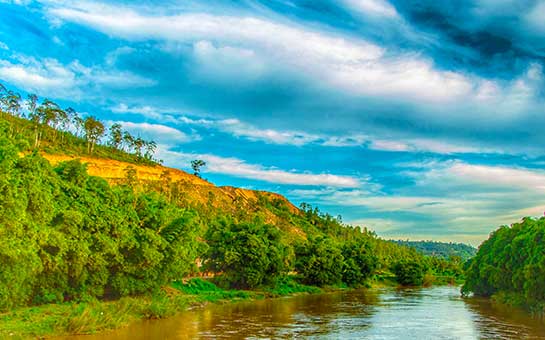Rwanda, the smallest country in the African mainland, has left its tragic history of genocide behind and has moved ahead with determination. Today, tourism is Rwanda’s largest source of earning foreign exchange.
This lush, green country of beautiful roads is safe with remarkably low crime rates. Known to be the most corruption-free country in the region, Rwanda is an ideal destination if you find nature and wildlife exciting. While preparing for your trip to Rwanda, be sure to buy travel medical insurance as protection against any unexpected illnesses, injuries, or accidents that could occur during your trip.
Rwanda Travel Medical Insurance for International Travelers - FAQs
Do I need travel medical insurance for Rwanda?
Travel health insurance is compulsory for all international travelers to Rwanda. If you arrive without one, you’ll have to purchase one on arrival. It is infinitely better to go prepared with travel medical insurance than trying to buy one in a hurry.
Yellow fever vaccine certificates are also compulsory.
Why buy travel medical insurance for Rwanda?
Firstly, it is compulsory. Your private health insurance will not work in Rwanda. Why spend vacation time looking for appropriate travel medical insurance for Rwanda? Go prepared with one.
You are also at risk of exposure to waterborne and vector-borne infections. Nature treks and wildlife tracking involve inherent hazards; a vacation to Rwanda can involve considerable risks.
The right choice is to buy Rwanda travel medical insurance and enjoy your vacation with one less thing to worry about.
Things to Do for Travelers in Rwanda
The best time to visit Rwanda is during the long dry spell from mid-May to mid-October. You may get offseason discounts if you go between late October and early May; however, the top two activities listed below may not be possible.
Here’s a list of 5 unique things you can do in Rwanda.
- Gorilla Tracking: We share 98% of our DNA with these big, yet gentle creatures. The lure of watching them up close and personal is number one on travel itineraries for Rwanda. About half of the world’s 1,000 surviving gorillas live here. Once you spot a gorilla family, you can spend an hour with them. Gorilla tracking is expensive at U.S. $1,500 per person. It is money well-spent, though. It contributes to conservation efforts for this endangered species.
- Volcano Trekking: The view from any volcano top in Rwanda is invariably stunning. The most popular trek begins early in the morning from inside the spectacular Volcanoes National Park. The hike can be strenuous as you enter the forest on the Virunga mountain range. If you want a moderate morning trek, try Mount Bisoke. The crater lake at its top is an attraction by itself. If you are a keen trekker, do one of the overnight treks. You camp en route to reach the peak the next morning.
- Spend a Day in Kigali: Done enough nature hugging? Spend a day in Kigali, Rwanda’s capital. There’s plenty to do in this thriving city. Visit the Kigali Genocide Memorial, where 250,000 victims lie in rest. It is a sobering experience. Witnessing the impact of intolerance highlights the need to be more accepting and inclusive. Go to the Kimironko market to buy fresh fruits and vegetables at incredibly low prices. Splurge on Rwandan handicrafts and fabrics. Try traditional Rwandan dresses. Women with their sewing machines will alter them for you then and there. The Inema Art Center, the Niyo Art Gallery, and the Ntarama Church feature high on the tourist attraction list.
- Say Hello to Chimps and Rare Old-World Monkeys: The Nyungwe National Park, a rainforest, is home to many varieties of chimps, as well as to the rare owl-faced monkeys and the black and white colobus monkeys. The Canopy Walkway, a high suspension bridge, offers fantastic views of the valley and the forests that surround it.
- Go Kayaking in Lake Kivu: A sunrise or a sunset from a kayak drifting slowly in Lake Kivu is an unforgettable experience. It will be a moment etched in eternity for you.
Travel Risks for International Travelers in Rwanda
A note of caution: Rwanda banned non-biodegradable plastic bags in 2008. Be a responsible international tourist. Don’t carry plastic polyethylene bags.
Random luggage checks at the airport are routine. Make sure you aren't carry anything that isn't allowed. You may attract a fine of up to U.S. $61 or jail term for severe offenses.
Other necessary precautions include:
- Make sure your travel medical insurance covers common diseases and that you’ve taken the appropriate vaccines.
- Rwanda’s healthcare arrangements are basic. Be smart and make sure your travel medical insurance plan includes emergency medical evacuation.
- Wildlife exposure and trekking, the key attractions in Rwanda, come with their inherent risks. Avoid insect bites or tripping during a trek.
- Rwanda is a safe country, even for lone travelers, except for infrequent petty crimes like pickpocketting in markets and other crowded places.
Before You Travel to Rwanda - Do This
- Get a yellow fever vaccination, and carry the certificate.
- Get a Rwanda travel medical insurance plan. Enter some basic information about your trip, compare your options side by side, and select the plan that best fits the needs of your itinerary, destination, and budget.
- Pack plenty of insect repellant and sunscreen lotion.
